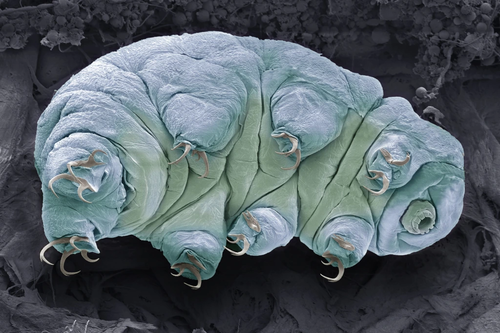from ZeroHedge:

Reports out of China continue to confirm that scientists there are still seeking to push through barriers with Frankenstein-like experimentation on genes with an eye toward the manipulation of human DNA – any and all ethical considerations be damned. What could go wrong?
The Hong-based South China Morning Post has a doozy of a headline out this week based on a breakthrough announcement by a team of scientists linked to the Chinese military, working in Beijing: “Chinese team behind extreme animal gene experiment says it may lead to super soldiers who survive nuclear fallout.”
TRUTH LIVES on at https://sgtreport.tv/
The project was first unveiled in the Chinese-language journal, Military Medical Sciences, and has been gaining more and more media attention and interest within the scientific community, but is also raising serious ethical quandaries, despite the experiment being defended by its overseers as “totally legal”.

According to details, the military scientists say they’ve successfully “inserted a gene from the microscopic water bear into human embryonic stem cells and significantly increased these cells’ resistance to radiation.”
“They said success in this unprecedented experiment could lead to super-tough soldiers who could survive nuclear fallout,” SCMP writes. The initiative involved the experimental introduction into human DNA (utilizing embryonic cells) of a key gene found the water bear. The gene in question gives the microscopic creature rare resistance to radiation and other extreme environmental effects.
Scientists have long considered that water bears, also known as tardigrades, may hold genetic secrets which could one day be key to human survival and longevity. The eight-legged tiny animal which is smaller than a millimeter in length, has been described as follows:
Tardigrades are tiny, cute and virtually indestructible. The microscopic animals are able to survive in a pot of boiling water, at the bottom of a deep-sea trench or even in the cold, dark vacuum of space. In August, an Israeli spacecraft carrying tardigrades as part of a scientific experiment crashed on the moon, and scientists believe they may have survived.
Having isolated the Tardigrade’s gene capable of producing shieldlike proteins which can protect against radiation and other harms, the Chinese team said it “found a way to introduce this gene into human DNA using CRISPR/Cas9, a gene-editing tool now available in most bio-labs,” according to the SCMP review of the experiment.
“In their laboratory experiment, nearly 90 per cent of the human embryonic cells carrying the water bear gene survived a lethal exposure to X-ray radiation, according to the team led by professor Yue Wen with the radiation biotechnology laboratory at the Academy of Military Sciences, Beijing,” the report continues.



